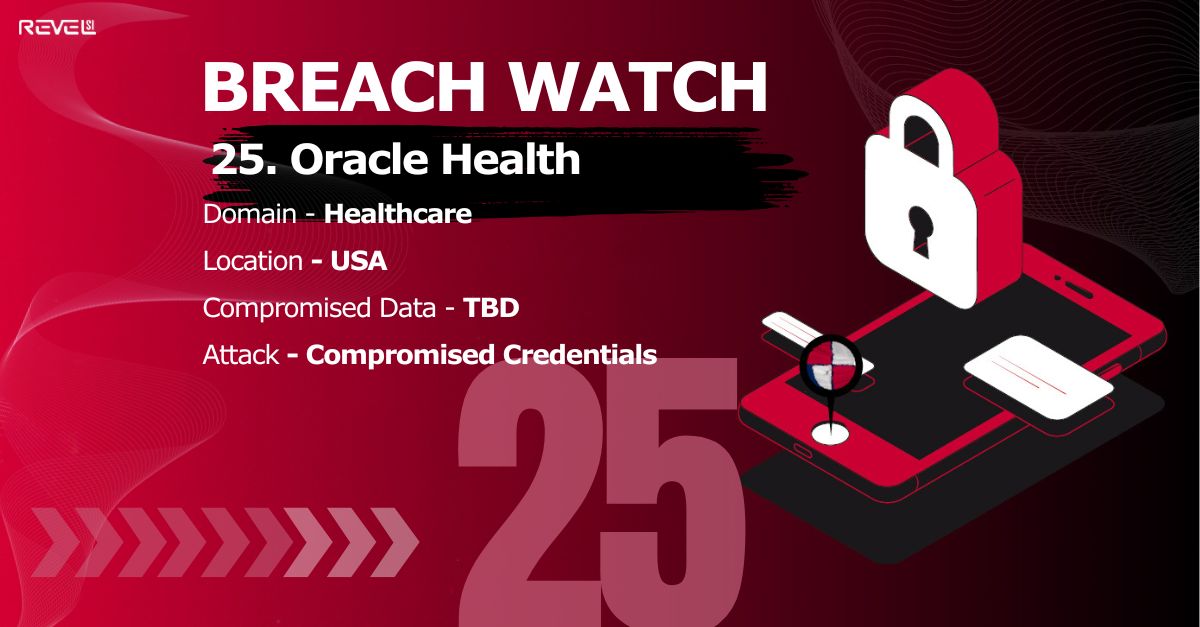Oracle Health Gets Breached Due To Legacy Systems

Overview
Oracle Health (formerly Cerner) has confirmed a data breach that exposed patient data at several U.S. hospitals. The incident is now under investigation by the FBI, and there are still a lot of open questions about what was accessed and who was affected.
How it happened
Hackers used stolen customer credentials to get into older Oracle Health systems that hadn’t yet moved to the cloud. The breach likely happened after January 22, and Oracle started alerting some customers around February 20. Sensitive data, including electronic health records, was taken.
What’s at risk
◾ Patient privacy and trust: Health records include personal, medical, and sometimes financial information. Leaks like this can cause long-term harm for individuals. ◾ Compliance and legal exposure: Hospitals now have to assess whether the breach triggers HIPAA notification requirements — and if they’re not thorough, they risk fines or lawsuits. ◾ Operational disruption: Some hospitals report vague or incomplete communication from Oracle, with no formal documentation — making incident response and communication with patients even harder. ◾ Broader systemic risk: Legacy systems and vendor dependencies are common in healthcare. This breach is a reminder that gaps in third-party security can easily become your problem.
A few takeaways
◾ Legacy infrastructure needs serious attention. It’s not just a technical debt issue — it’s a security risk. ◾ Credential misuse is still one of the top attack vectors. Strong password policies, MFA, and access monitoring aren’t optional anymore. ◾ The way a breach is handled matters. Delays, vague language, or poor communication can cause just as much reputational harm as the breach itself. ◾ Vendors are extensions of your attack surface. Organizations need to continuously evaluate the security posture of the third parties they rely on — especially those handling sensitive data.
Data breaches like this are becoming more common, but how we prepare and respond can still make all the difference.
The Oracle Health data breach is another event in a troubling trend in the healthcare industry, where the frequency and severity of cyberattacks have escalated dramatically. In 2024 alone, there were 734 reported healthcare data breaches affecting over 276 million individuals, averaging more than 758,000 compromised records per day. Notably, the February 2024 ransomware attack on Change Healthcare impacted approximately 100 million patients, marking one of the largest healthcare data breaches to date.
These incidents highlight the critical need for robust cybersecurity measures within the healthcare sector. As cyber threats continue to evolve, healthcare organizations must prioritize the protection of patient data to maintain trust and ensure compliance with regulatory standards.
Stay safe, stay ahead.
